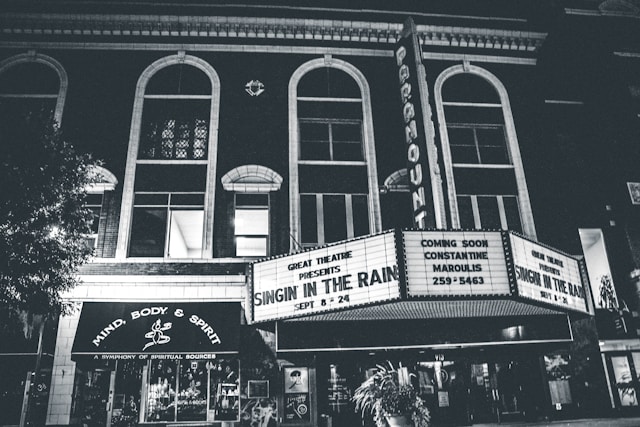Reality TV is sold as “unscripted” entertainment real people in real situations, reacting in the moment. But anyone who’s watched enough reality competition finales, tear-filled breakups, or perfectly timed arguments knows there’s more going on behind the scenes than pure coincidence.
While most reality TV shows don’t hand contestants an actual script like a drama series would, producers still shape the story, influence events, and edit footage in ways that make the final product feel… well, scripted. Let’s pull back the curtain and see exactly how it happens.
The Truth About “Scripted” in Reality TV
When people ask how reality TV shows are scripted, they often imagine producers handing contestants lines on a page. In most cases, that’s not true. The “script” is usually a set of story beats and emotional moments producers want to capture how the cast gets there is often up to them.
This is sometimes called soft scripting. Producers don’t dictate every word, but they give guidance, nudge conversations in certain directions, and sometimes stage situations to encourage specific reactions.
The end result? A show that feels spontaneous but still delivers all the drama and emotional highs that keep viewers hooked.
Producer Manipulation Techniques
Producers have a bag of tricks to ensure every episode has enough tension, laughs, and tears. Here are some of the most common reality TV secrets.
1. Casting for Drama
Casting is the first “script” in reality TV production. Shows deliberately select personalities that will clash—mixing confident extroverts, sensitive introverts, and a few wildcard contestants who are likely to stir the pot.
2. Leading Questions
In interviews and confessionals, producers may ask leading questions like, “Why do you think Sarah is jealous of you?” or “How do you feel about John betraying the group?” This encourages participants to voice stronger opinions or repeat key phrases the editors can use later.
3. Reshooting Scenes
Sometimes a reaction isn’t dramatic enough or a moment isn’t clear, so producers have contestants redo conversations or reactions. This isn’t technically scripted dialogue, but it ensures the right beats are captured.
4. “Frankenbiting”
One of the biggest reality TV production tricks is Frankenbiting editing together bits of audio from different moments to create a new sentence or reaction. This can make it seem like someone said something they never actually said in that exact way.
Editing: The Real Story Shaper
If producers guide the story, editors lock it in place. Editing is where reality TV truly becomes “scripted” without a traditional script.
-
Pacing control – Editors speed up or slow down scenes to build tension.
-
Reaction shots – Cutting to an unrelated facial expression can make a conversation seem more awkward or intense.
-
Music and sound effects – Dramatic music cues or silence can change the meaning of a scene entirely.
-
Selective cuts – Hours of footage are boiled down to minutes, often leaving out key context.
This is why contestants often say, “That’s not how it really happened!” the raw events might be real, but the version on TV is crafted for maximum entertainment.
Story Arcs in Reality TV
Another way reality TV shows are scripted is through preplanned story arcs. Even without a written script, producers often decide early on who might be the “hero,” “villain,” “comic relief,” or “underdog.”
Throughout filming, they’ll highlight moments that fit these roles:
-
The villain gets shown during arguments.
-
The hero is often framed in inspiring montages.
-
The comic relief gets quirky sound effects.
This doesn’t mean the cast members are playing characters they’re real people but the narrative built in editing makes them appear to fit specific roles.
Why Viewers Still Love It
Even when fans know reality TV production isn’t purely “real,” the shows remain wildly popular. Why?
Because they’re entertaining. Viewers tune in for:
-
Dramatic confrontations
-
Romantic twists
-
Emotional backstories
-
Suspenseful eliminations
In a way, the editing and producer guidance just ensure the show delivers what audiences expect every time.
Ethics and Controversy
Not everyone is okay with the way reality TV is scripted behind the scenes. Critics argue that manipulating footage and using Frankenbiting can harm reputations or misrepresent events.
There have been lawsuits from contestants claiming they were unfairly portrayed, and some viewers have criticized the lack of transparency in how shows are produced. On the flip side, networks defend these techniques as creative storytelling necessary to condense weeks of footage into watchable episodes.
The Blurred Line Between Reality and Entertainment
The truth about how reality TV shows are scripted is that it’s less about written lines and more about shaping reality into a compelling story.
Producers plan dramatic moments, guide conversations, and edit footage in ways that heighten emotions and keep you coming back for the next episode. Whether you see that as harmless entertainment or deceptive manipulation depends on how much “reality” you expect in your reality TV.

